In most drug cases in Texas, arrests are made by state agencies, and charges are filed in state courts. Drug cases that involve significant amounts of activity that crossed state lines can lead to possible federal charges.
Any federal drug crime case immediately becomes far more serious for an alleged offender because they will usually be facing far greater penalties. Furthermore, the federal agency handling the prosecution is often armed with significantly more resources than its state counterpart.

Federal Drug Charges Defense Lawyer in Denton, Frisco, Lewisville, Flower Mound, TX
If you or your loved one think that you might be under investigation or you were already arrested for an alleged federal drug crime in the greater Denton area, you are going to need to immediately retain legal counsel. The Law Offices of Richard C. McConathy defends clients in both state and federal courts in Texas.
Our firm can fight to help you achieve the most favorable possible outcome to your case. Call (940) 222-8004 or contact us online to receive a free consultation.
Federal Drug Schedules
The Controlled Substances Act (CSA) is the federal law determining drug policy in the United States, and it establishes five different classifications for illegal drugs called schedules. A controlled substance abuse or dependency potential and acceptable medical use determine the schedule it is categorized under.
Drug schedules are defined as follows:
- Schedule I — Drugs, substances, or chemicals with no currently accepted medical use and a high potential for abuse. Examples Include gamma-Hydroxybutyric acid (GHB), lysergic acid diethylamide (LSD), mescaline, peyote, methaqualone, marijuana, heroin, and3,4-methylenedioxymethamphetamine (MDMA, Ecstasy, or Molly).
- Schedule II — Drugs, substances, or chemicals with a high potential for abuse, with use potentially leading to severe psychological or physical dependence. Examples include morphine, hydromorphone(Dilaudid), fentanyl, oxycodone (OxyContin, Percocet), Dexedrine, meperidine(Demerol), methylphenidate (Ritalin), cocaine, opium, and methamphetamine.
- Schedule III — Drugs, substances, or chemicals with a moderate to low potential for physical and psychological dependence. Examples include products containing less than 90 milligrams of codeine per dosage unit (Tylenol with codeine), ketamine, and anabolic steroids.
- Schedule IV — Drugs, substances, or chemicals with a low potential for abuse and low risk of dependence. Examples include alprazolam (Xanax), carisoprodol (Soma), diazepam (Valium), and lorazepam(Ativan).
- Schedule V — Drugs, substances, or chemicals with lower potential for abuse than Schedule IV and consist of preparations containing limited quantities of certain narcotics. Schedule V drugs are generally used for analgesic, antitussive, and antidiarrheal purposes. Examples Include cough preparations containing not more than 200 milligrams of codeine per 100 milliliters or per 100 grams (Robitussin AC), pregabalin (Lyrica), and diphenoxylate (Lomotil).
Federal Drug Trafficking Penalties
Possession, delivery, distribution, cultivation, manufacturing, conspiracy, and fraud are common examples of the types of federal drug crimes people can be charged with. According to the United States Sentencing Commission (USSC),19,222 of 67,742 cases reported to the agency were for drug trafficking and 95.7 percent of offenders in drug trafficking cases were sentenced to prison.
Federal drug trafficking conviction penalties are as follows:
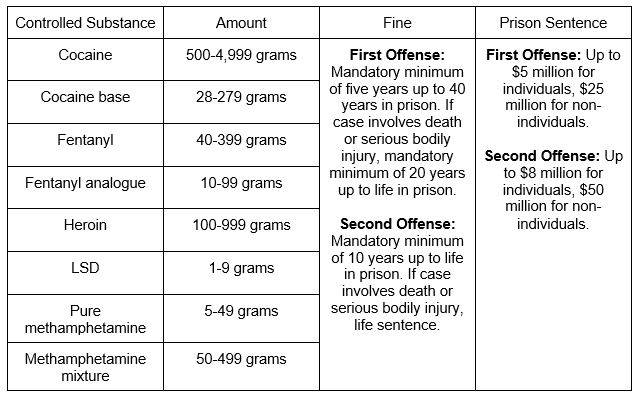
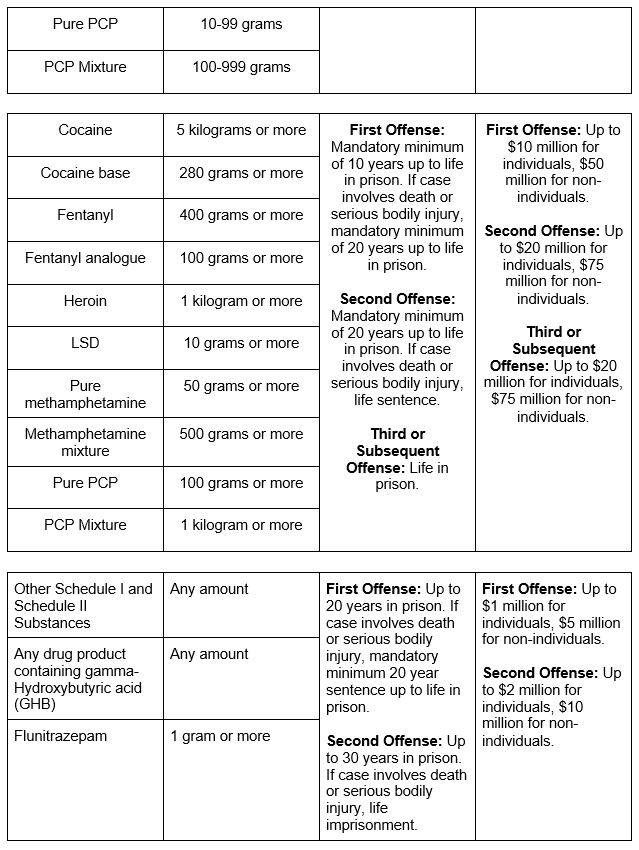
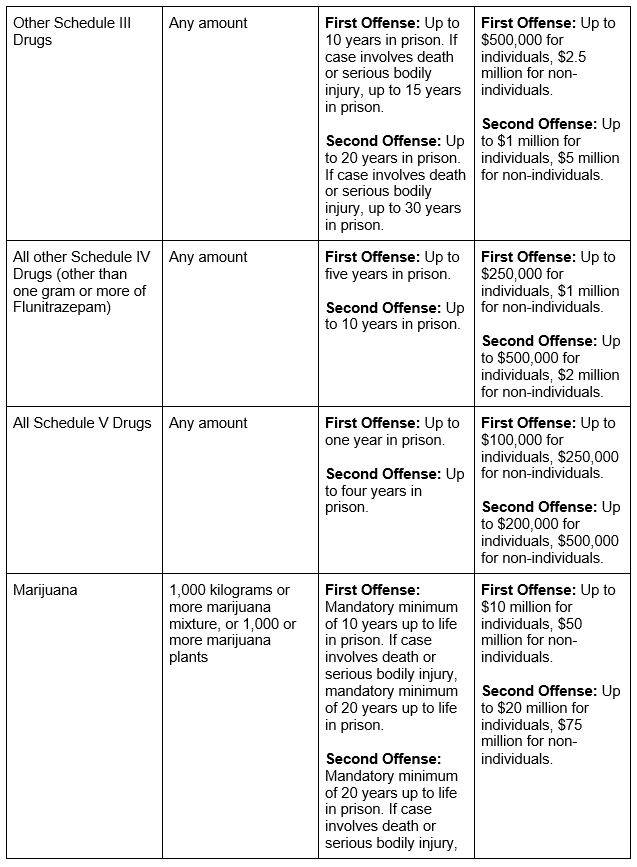
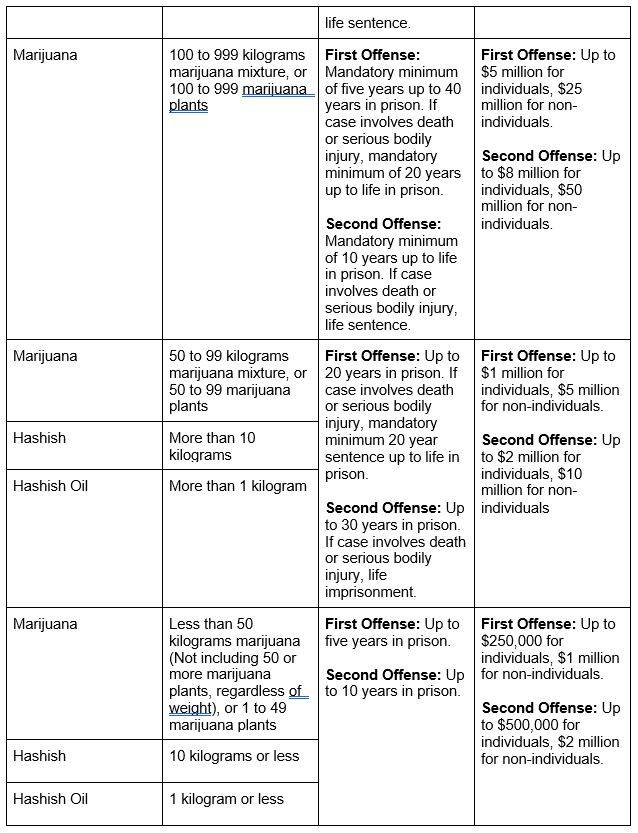
Federal Drug Crime Defenses in Denton
When federal agencies become involved in drug cases, there are frequently multiple defendants. Many people are charged with drug crimes when they did not know about drugs or illegal activity.
Another common issue in these types of cases can be illegal searches and seizures by police officers. When police find drugs through illegal searches, the prosecutor will usually be unable to use any evidence seized against the alleged offenders.
Denton County Federal Drug Crime Resources
Drug Offenders in Federal Prison – Bureau of Justice Statistics (BJS) —Virtually all (99.5 percent) drug offenders in federal prison were serving sentences for drug trafficking, according to this October 2015 Department of Justice Report. Cocaine (powder or crack) was the primary drug type for over half (54 percent) of drug offenders in federal prison. Federal drug offenders had an average prison sentence of more than 11 years.
United States Drug Enforcement Administration (DEA)— The mission of this agency is to “enforce the controlled substances laws and regulations of the United States and bring to the criminal and civil justice system of the United States, or any other competent jurisdiction, those organizations and principal members of organizations, involved in the growing, manufacture, or distribution of controlled substances appearing in or destined for illicit traffic in the United States.” Use this website to learn more about drug scheduling, find drug fact sheets, and view the entire CSA. Also find information about the DEA’s Community Outreach, Office of Diversion of Control, and other programs.
Find A Denton County Defense Attorney for Federal Drug Charges | Law Offices of Richard C.McConathy
Have you or your loved one been arrested or do you believe that you could be under investigation for a federal drug crime in Denton or a nearby area of Denton County? Try not to say anything to authorities until you have legal representation.
The Law Offices of Richard C. McConathy can be by your side and will fight to get your criminal charges reduced or dismissed. Our firm can help you understand all of your legal options when you call (940) 222-8004 or contact us online to schedule a free consultation.
